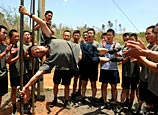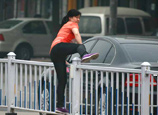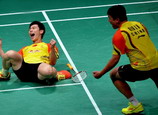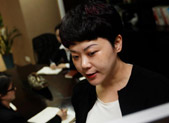
SINGAPORE, May 27 (Xinhua) -- The coroner's inquiry into the death of a U.S. microelectronics engineer in Singapore was adjourned on Monday after all the witnesses gave their testimonies.
The closing submissions in the inquiry into the death of Shane Todd last year was scheduled for June 17, 2013, while the verdict is expected on July 8.
Dim-Lee Kwong, executive director of the Institute of Microelectronics (IME), a unit of Singapore's Agency for Science, Technology and Research and the former employer of Todd, took the stand in the morning. He said Todd should be free of stress from work when he saw a psychiatrist as he had already made it known that he intended to resign.
The resignation request was also prior to a face-to-face meeting Todd had with China-headquartered multinational telecommunications equipment maker Huawei executives in April. Todd helped prepare a proposal for a potential Huawei-IME collaboration, but the project did not materialize, Kwong said.
Kwong said that Todd had volunteered to transfer from his area of expertise to the then newly formed Gallium Nitride research group even though he had no expertise in the area.
While Todd's family has claimed that he feared a machine purchased by the institute would be used for military purposes against export licensing rules, Kwong told the inquiry that he had in fact volunteered to buy the machine as well as go to the United States to be trained in its use.
Todd's family also alleged that the U.S. researcher was made to copy a "valuable recipe" while on a training stint in the United States to learn to operate a tool that deposits gallium nitride on silicon wafers. Todd's family claimed the recipe put his life in danger.
But Kwong said that the alleged in fact identical to a formula found in his doctorate thesis and had nothing to do with gallium nitride.
"It appears to have something to do with Shane's research interests and nothing to do with gallium nitride recipes," Kwong said.
The machine Todd had been involved in purchasing was also available in China and came with the same scientific recipe, Kwong said.
Todd, 31, was found hanging from the door of his toilet room in apartment on the second floor of a shophouse in downtown Singapore on June 24 last year, with suicide notes and letters found on his computer.
Singapore police concluded after an investigation that Todd had committed suicide. Todd's parents, however, believed it was impossible for their son to take his own life and suspected foul play. They alleged that their son have lost his life over a research collaboration between the Institute of Mircroelectronics and Huawei.
They flew to Singapore for the coroner's inquiry that started on May 13, but stormed out of the court on May 21, after a key witness who produced a report commissioned by the family partly retracted his opinion that Todd had been murdered by garroting before being hanged up to cover up the thinner ligature mark in his neck. The expert, who admitted that he was not a certified forensic pathologist, said he changed his opinion after review new evidences given to him by the Todds, but nevertheless insisted that Todd was murdered.
At least four other reports by forensic experts from both Singapore and the United States, however, said they believe Todd took his own life, as they found no internal injury and no signs of foul play at the scene.
Singapore said it was regrettable for the family to walk out of the proceedings and give up their chances to get some of the questions clarified.
The officer handling the investigation into Todd's death also took the stand on Monday, before the recorded statements of Todd's parents were read in the court.
Some of the notable or even bizarre discrepancies include Todd' s parents saying that the officer talked about bolts, screws and pulleys while the officer denied ever saying this in their meeting.
Todd's parents also alleged that they found an external hard drive that was ignored by the Singapore police. The Singapore police officer, however, said that the external hard drive turned out to be the same one processed by him before it was handed over to the Todds in presence of U.S. embassy officials.
The family, who has sought help from the Financial Times as well as U.S. lawmakers to put pressure on Singapore, has said that they intended to push for an investigation by the U.S. Congress.
















 China's Shandong witnesses frequent thunderstorms, downpours | More Photos
China's Shandong witnesses frequent thunderstorms, downpours | More Photos


![]()
